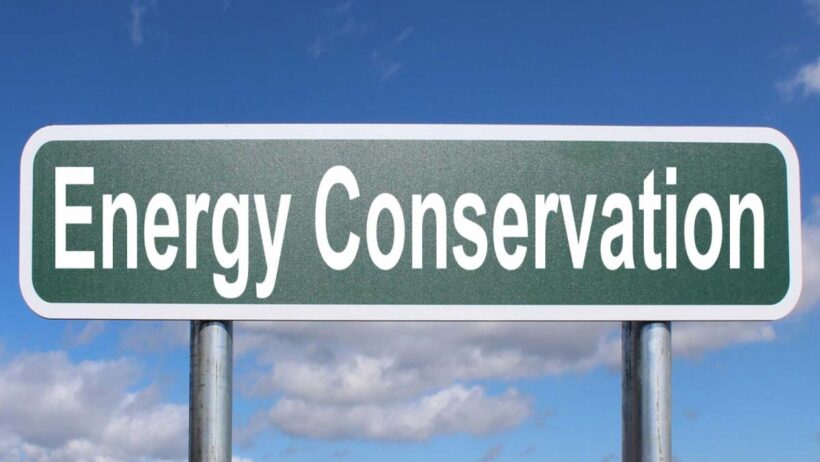As we grapple with the complexities of modern living, the question surfaces: why bother conserving energy? At first glance, the effort may seem unnecessary or even trivial in the grand schema of global challenges. However, a closer inspection reveals that energy conservation is not merely an act of goodwill; it is paramount for fostering a sustainable future. The myriad benefits extrapolated from conserving energy encompass environmental, economic, and social domains, each contributing to a more balanced Earth and society.
Consider the environmental implications first. The interconnectedness of life forms on this planet has never been more apparent. Continued reliance on non-renewable energy sources, such as coal, gas, and oil, accelerates climate change—an existential threat characterized by rising temperatures, altered precipitation patterns, and increasingly violent weather phenomena. The act of conserving energy curtails greenhouse gas emissions, the primary culprits of global warming. By reducing our energy consumption, we can mitigate the release of carbon dioxide and other pernicious pollutants, thus safeguarding ecosystems that are vital for biodiversity.
Furthermore, energy conservation diminishes the demand for traditional energy sources. As we lessen the burdens on these finite resources, we thrust the spotlight onto renewable energy innovations. A shift in energy focus— from fossil fuels to solar, wind, and hydropower—represents an opportunity for a revolutionary transition in our energy infrastructure. Interestingly, the investment in renewable energy superiority inevitably leads to job creation in innovative sectors, fostering a more robust economy based on sustainable practices.
Moreover, the financial advantages of conserving energy cannot be overstated. Households and businesses alike are often burdened by exorbitant energy bills. By implementing energy-efficient measures—such as utilizing LED lighting, upgrading insulation, and employing energy-efficient appliances—individuals can significantly reduce their monthly expenses. These strategies might seem daunting at first, but they inherently promise financial freedom in the long term. Indeed, many energy-efficient upgrades exhibit quick payoff periods, often reducing expenditures within a year or two.
Notably, energy conservation also garners governmental and institutional incentives. Various tax credits, rebates, and other forms of financial assistance encourage the adoption of energy-efficient technologies. The cumulative effect of these incentives not only lightens the financial load for individuals but also aligns national policy with global sustainability goals. Such initiatives reflect a burgeoning recognition that fiscal prudence and environmental stewardship are not mutually exclusive; instead, they can, and must, coexist harmoniously.
In addition to ecological and economic benefits, energy conservation enhances social equity. The unjust distribution of energy resources often exacerbates existing inequalities. Lower-income households frequently bear disproportionate energy costs, spending a higher percentage of their income on utilities than their wealthier counterparts. Through widespread conservation efforts, energy costs can be lowered, creating a more equitable distribution of resources. This empowering shift can uplift communities, allowing individuals to divert saved funds toward education, healthcare, and other integral aspects of life.
Moreover, the psychological and social dimensions of conserving energy are equally significant. Every act of energy conservation, no matter how minuscule, fosters a sense of agency—an acknowledgment that each individual can effect tangible change. When communities unite to promote energy-saving initiatives, collective efforts amplify the importance of stewardship, propelling environmental consciousness into the public consciousness. This cultural paradigm shift, one that prioritizes sustainability over immediate convenience, is instrumental in nurturing a more responsible populace.
However, the journey to comprehensive energy conservation is riddled with challenges, requiring a meticulous examination of habits and routines. The concept of ‘mindfulness’ applies aptly here—encouraging individuals and organizations to be cognizant of their energy usage. Individuals can, for instance, adjust their lifestyles by adhering to the philosophy of “reduce, reuse, recycle.” Reduction transcends mere recycling; it implores us to scrutinize our consumption patterns and ask whether we truly need to use that extra watt of energy. This critical reflection can catalyze a broader awareness of sustainability.
Educational institutions play an essential role in embedding the value of energy conservation from a young age. Engaging students with projects that promote sustainability helps to cultivate an inherent respect for resources, prompting future generations to embrace eco-friendly practices as a societal norm. This educational foundation is paramount; as children grow into adulthood, they become vital agents of change, leading their families and communities into a sustainable future.
In summation, the question, “Why bother?” is replete with compelling reasons to engage in energy conservation. The multi-faceted benefits encompass environmental stabilization, financial savings, economic advancement, social equity, and the cultivation of a sustainable ethos. By altering our perspectives on energy consumption, we can ignite curiosity and motivate change. Embracing energy conservation can profoundly alter not only our individual lives but also the holistic future of our planet. With a concerted effort, we can construct a legacy that underscores our commitment to preserving the Earth for generations to come, poised on the cusp of transformative possibilities.







